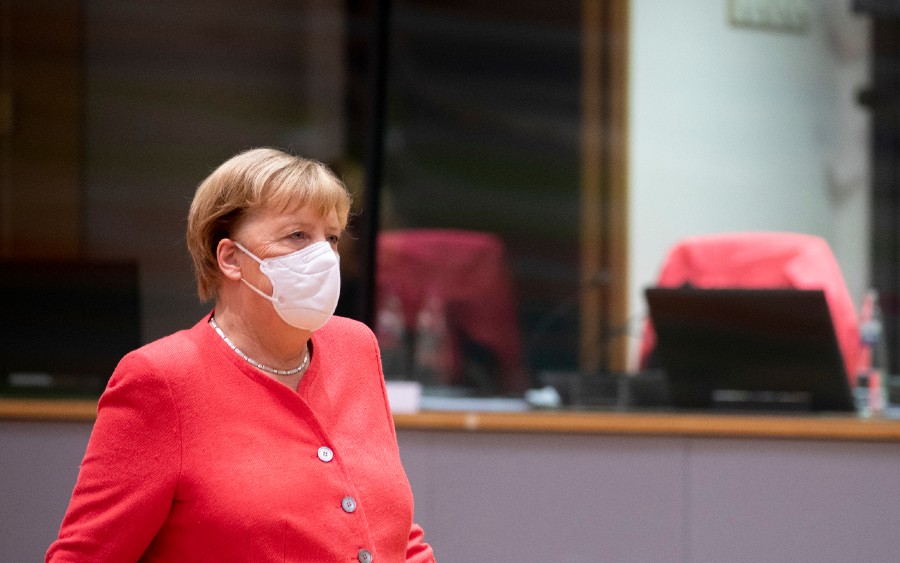German Social Demo¬crat Olaf Scholz said on Wednesday he had reached a coalition deal to form a new government that will try to modernise Europe’s largest economy and bring the curtain down on the Angela Merkel era.
Scholz’s CentreLeft Social Democrats (SPD), the ecolo¬gist Greens and the libertarian Free Democrats (FDP) want to accelerate the transition to a green economy and digitalisation while maintaining fiscal discipline, according to a 177page agreement.
The alliance — named a traffic light coalition after the three parties’ respective colours — has a majority in the lower house of parliament and hopes the government will be sworn in early next month after the parties ratify the coalition pact.
The first alliance at a federal level between the ideolog¬ically disparate parties will end 16 years of Merkelled conservative government, marking a new era for relations with Europe and the rest of the world.
At a news conference in Berlin, flanked by the FDP and Greens leaders, Scholz re¬called that when the first traf¬fic light was erected at the city’s Potsdamer Platz in 1924, many questioned whether it could work.
“Today, the traffic light is indispensable when it comes to regulating things clearly and providing the right orientation and ensuring that everyone moves forward safe¬ly and smoothly,“ he said.
“My ambition as chancel¬lor is that this traffic light al¬liance will play a similarly groundbreaking role for Germany.”
Merkel leaves big shoes to fill. She has navigated Ger¬many and Europe through multiple crises and been a champion of liberal democra¬cy in the face of rising authori¬tarianism worldwide.
Her critics say she has managed rather than solved problems and leaves her successor tough decisions on many fronts.
Scholz's incoming government faces immediate challenges, with Europe grappling with the fallout from Brexit, a crisis on the European Union's border with Belarus and surging COVID19 cases.
While Germany's electoral campaign was largely focused on domestic issues, the coalition pact shed light on the next government's foreign policy priorities.
The parties agreed to strengthen the EU's economic and monetary union and signalled an openness to reform the bloc's fiscal rules, also known as the Stability and Growth Pact.
They also agreed Germany would remain part of NATO's nuclear sharing agreement, a move that will prevent a rift in the Western military alliance at a time of rising tensions with Russia.
Greens coleader Annalena Baerbock, 40, is expected to become the country's first female foreign minister. While the parties have yet to announce the cabinet lineup, Scholz has already said he wants a genderequal government.
FDP leader Christian Lindner, 42, is set to take over at the finance ministry and Greens coleader Robert Habeck, 52, is widely expected to take on a newly expanded economy and climate change ministry.
The incoming coalition will have to balance the Greens' calls for a tougher line on Russia and China on human rights with Scholz's likely preference not to risk a confrontation with the two countries over issues such as Taiwan and Ukraine.
Underscoring its socially liberal bent, the coalition agreed to allow multiple citizenship and legalize the sale of cannabis for recreational use at licensed shops.
Presiding over what could be her final cabinet meeting, Merkel bade her colleagues farewell earlier in the day, and Scholz presented the EU's longestserving leader with a tree to plant in her garden.
As finance minister and vice chancellor in the outgoing ”grand coalition” of the SPD and conservatives, Scholz, 63, was seen as a competent rather than a charismatic politician who, like Merkel, has moderate views and is adept at dialogue.
He now needs to build and maintain a consensus between the Greens and SPD, who are widely seen as natural centreleft partners, and the fiscally hawkish FDP have historically been closer to Germany's conservatives.
Merkel did not seek reelection after four terms as chancellor.
Her personal popularity ratings remain high, but her party is in disarray and facing a leadership contest after achieving its worst results in a federal vote following a gaffeprone campaign by its candidate for chancellor. ($1 = 0.8919 euros)
(Reporting by Holger Hansen, Markus Wacket, Thomas Escritt, Sabine Siebold, Markus Wacket and Christian Kraemer; Writing Sarah Marsh and Maria Sheahan, editing by Emma Thomasson, Giles Elgood and Timothy Heritage)










